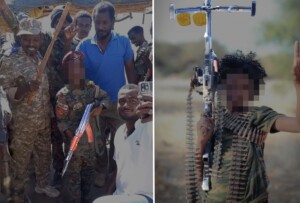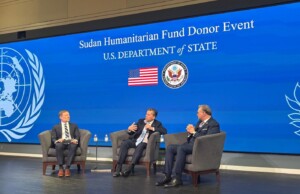Detentions of journalists covering Sudan protests continue
Four journalists are held in detention by the National Intelligence and Securtiy Service (NISS) for their reporting on the popular protests in Sudan. Another journalist was summoned to appear at the NISS office.
 Journalists participating in the three-day strike that started on December 27 in Khartoum (RD)
Journalists participating in the three-day strike that started on December 27 in Khartoum (RD)
Four journalists are held in detention by the National Intelligence and Securtiy Service (NISS) for their reporting on the popular protests in Sudan. Another journalist was summoned to appear at the NISS office.
Feisal Mohamed Saleh of the Teiba Press Centre and journalist Gurashi Awad from El Midan newspaper were detained and Mohamed Abdelmajid of El Jareeda newspaper summoned. They have reportedly published critical writings about the regime since the outbreak of protests on December 19.
El Midan journalist Kamal Karrar has been in detention for several days. The announcer of the Northern State satellite channel, Ismail Bilal, has been in detention since December 22, following their media coverage of massive demonstrations in Dongola. There is no information about the condition of Bilal, sources told Radio Dabanga.
Earlier, journalist Yousef El Jalal from the S24 satellite station was suspended on the grounds of his appearance in the channel as an analyst.
Press curbs
The NISS has launched a frantic campaign against the press and imposed a strict prior-publication censorhip, monitoring the content of daily newspapers and mainly focusing on El Tayar and El Jareeda. It has, among others, prevented the two dailies from covering the protests by turning the printing presses into barracks for the security service or military, and the entire print-run of El Jareeda was confiscated on Sunday.
In addition, NISS members prevented the publication of the column of journalist Shamayel El Nour in El Jareeda on Thursday. They prevented her name and picture to appear in the newspaper for the second week in a row and ordered the editor-in-chief to remove her column completely. A notification explaining that ‘The writer’s column is deliberately blocked or barred by security’ was not allowed to be printed.
The media director of the security apparatus, Mohamed Tebeidi, earlier threatened journalists who participated in a three-day strike announced by the Sudanese Journalists’ Network that started on December 27. Ten journalists were held in front of El Tayar offices on the first day of the strike, including Shamayel El Nour, and released later that day.
Online media blockade
As reported by Radio Dabanga last month, in the early days of the current wave of mass street protests, the government imposed an internet blockade on social media on December 20. Journalists and activists from Khartoum told Radio Dabanga that they were unable to surf to social media platforms and here has been very slow internet access in general, they pointed out.
Since then news, pictures, and videos of the street protests in Sudan were able to continue to reach the outside world, despite the attempts by the Sudanese authorities to disrupt internet traffic.
This is likely due to the fact that authorities have not repeated the internet blackout they imposed during similar protests against fuel subsidy cuts in 2013 – which also turned deadly.
The head of Sudan’s National Intelligence and Security Service, Salah Abdallah (aka Salah Gosh), however, said in a rare news conference last month that “There was a discussion in the government about social media sites and in the end it was decided to block them.”
Civic Forum
On Thursday, members of the NISS raided the headquarters of the National Civic Forum in Khartoum and held its director, Hasan Abdelati, Ambassador Ibrahim Taha, and Montasir El Tayeb who is a professor of genetics at the University of Khartoum.
Witnesses told Radio Dabanga that the detainees were transferred to an unknown destination.











 and then
and then